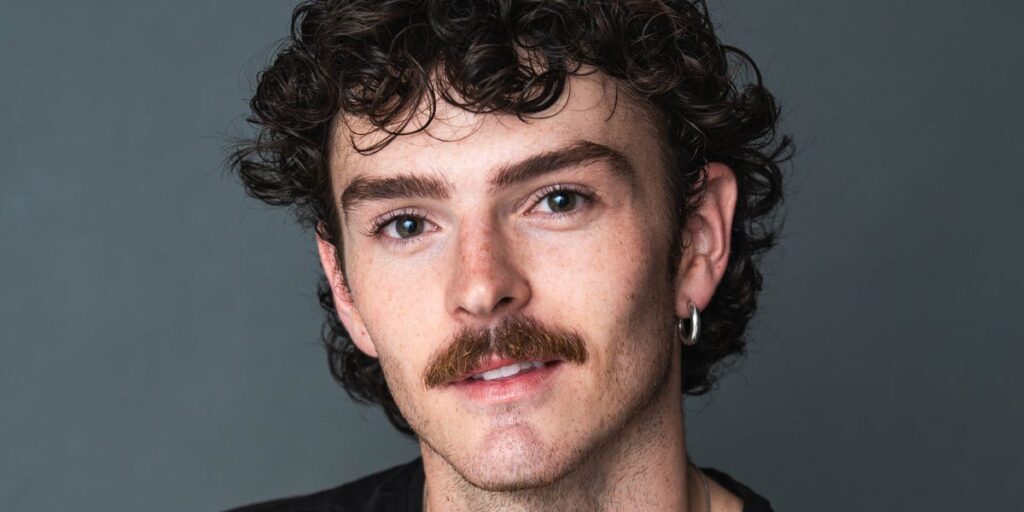This as-told-to essay recounts the experiences of Ben Chipman, a professional in commercial partnerships at NBC Universal, who began his journey as a freelancer. The conversation has been edited for succinctness and clarity.
Discovering Freelancing in College
Ben Chipman’s foray into freelancing began unexpectedly during his college years at Duke University in 2019. As a participant in initiating their creator economy programs, he leveraged his existing experience as a content creator on LinkedIn and TikTok. A pivotal moment occurred at an event he hosted with influencer Serena Kerrigan, where his connection with her creative strategist led to invaluable insights into content creation aligned with digital trends.
Facing Unexpected Career Changes
Despite successfully freelancing, Ben initially aimed for a corporate career post-graduation. Emerging from a culture that emphasized traditional professions like law and consulting, he completed a rewarding internship at LinkedIn in 2022. However, in a surprising turn of events, his job offer was rescinded due to the program’s discontinuation, leaving him to navigate the unexpected tech job recession.
Navigating the Transition to Full-Time Freelancing
The shift from freelancing as supplemental income to being his primary source was jolting. Ben had envisioned relocating to San Francisco for his LinkedIn position, but instead found himself back in the Boston suburbs, grappling with the adjustment. Grateful for the early warning from LinkedIn, he set forth on a mission to expand his freelance landscape and gain experience.
Building a Client Base Quickly
Ben’s networking strategy involved reaching out to past collaborators and utilizing connections from his university circle. He approached influencers with tailored pitches and offered flexible compensation structures like earning a percentage of brand deals. The freelance market was thriving, which made it easier for him to secure clients during a period when full-time jobs were scarce.
Embracing the Flexibility of Freelancing
Through his freelance work with startups like Canopy, Ben found joy in the variety and flexibility it offered. Whether it was leading influencer marketing campaigns or helping to launch podcasts, the role allowed him to balance work with personal interests, including travel and remote work opportunities. This adaptive lifestyle was appealing, especially compared to the rigidity of corporate roles.
Confronting Financial Insecurities
However, with the flexibility came challenges. Ben experienced financial insecurity, especially upon completing contracts without certainty about future work. The stress of managing living expenses back home compounded his worries, leading him to recognize the limitations of freelancing in terms of skill development and job security compared to traditional employment.
Transitioning to a Corporate Role
In January, Ben learned of a job opportunity in commerce partnerships at NBC Universal from a past colleague. After a series of remote interviews from Madrid, he was offered a position, starting just a year after graduation. Transitioning to a structured environment brought its own benefits, including collaboration with colleagues and clear job definitions, contrasting with the project ownership he had experienced as a freelancer.
Reflections on the Freelancing Experience
Looking back, Ben appreciates the lessons learned during his freelance journey. He recognizes its value for personal growth but advises recent graduates to consider the economic viability of freelancing as a primary career path. The financial insecurities prevalent among freelancers today may lead many to adopt hybrid work models, where freelancing serves as supplemental income alongside more stable employment.
From Freelancing to Corporate: A Journey of Growth and Experience
A Surprising Start to Freelancing
Freelancing can often be an unexpected path, as it was for one student who began their journey during their time at university. Beginning a career in content creation while attending college provided a unique blend of academic education and practical experience.
The Rise of Influencer Marketing
During their studies, the student organized a successful event featuring a prominent influencer, which opened doors for networking and collaboration. This experience not only enriched their knowledge but also laid the foundation for client relationships in the thriving creator economy.
A Shift in Career Plans
With aspirations for a corporate position, the student secured an internship that led to a job offer just before graduation. However, the unexpected cancellation of that offer due to company restructuring pushed them to embrace freelancing full-time.
Navigating the Freelance Landscape
The transition from casual side projects to full-time freelancing was challenging. The shift in income source was a wake-up call, urging them to find clients quickly. The freelancer reached out to their established network, demonstrating the importance of connections in the industry.
Embracing Flexibility and Variety
Freelancing offered tremendous flexibility, allowing for work-life balance and diverse projects. Engaging with startups provided exciting opportunities to lead influencer marketing campaigns and create compelling content, showcasing the versatility that freelancing can offer.
Challenges of Financial Insecurity
Despite the appealing aspects, financial instability remained a constant concern. The struggle to secure reliable income and manage living expenses highlighted the risks associated with freelancing. Learning opportunities were often limited, as startups could not provide the same resources as established companies.
A Return to Corporate Life
Ultimately, the freelancer found a corporate position in commerce partnerships, allowing them to merge their experiences from freelancing with the stability of a structured job. The transition underscored the importance of mentorship and clear communication in a corporate environment.
Reflection: Freelancing as a Learning Experience
While the experience gained from freelancing proved invaluable, the individual acknowledges the challenges faced by recent graduates in navigating this path. As the job market continues to evolve, many are turning to freelancing not just for passion but out of necessity, revealing the shifting dynamics of work in today’s economy.


